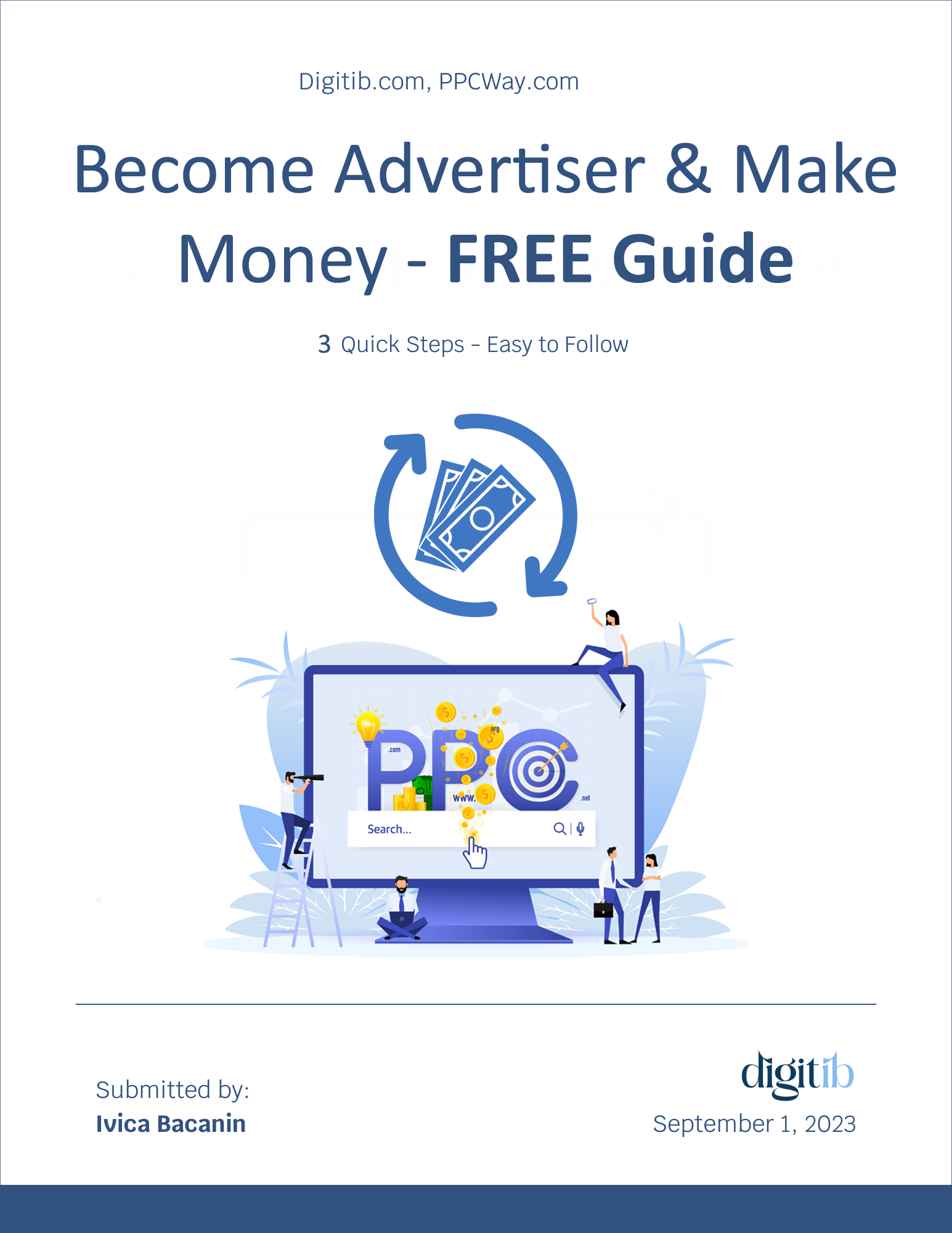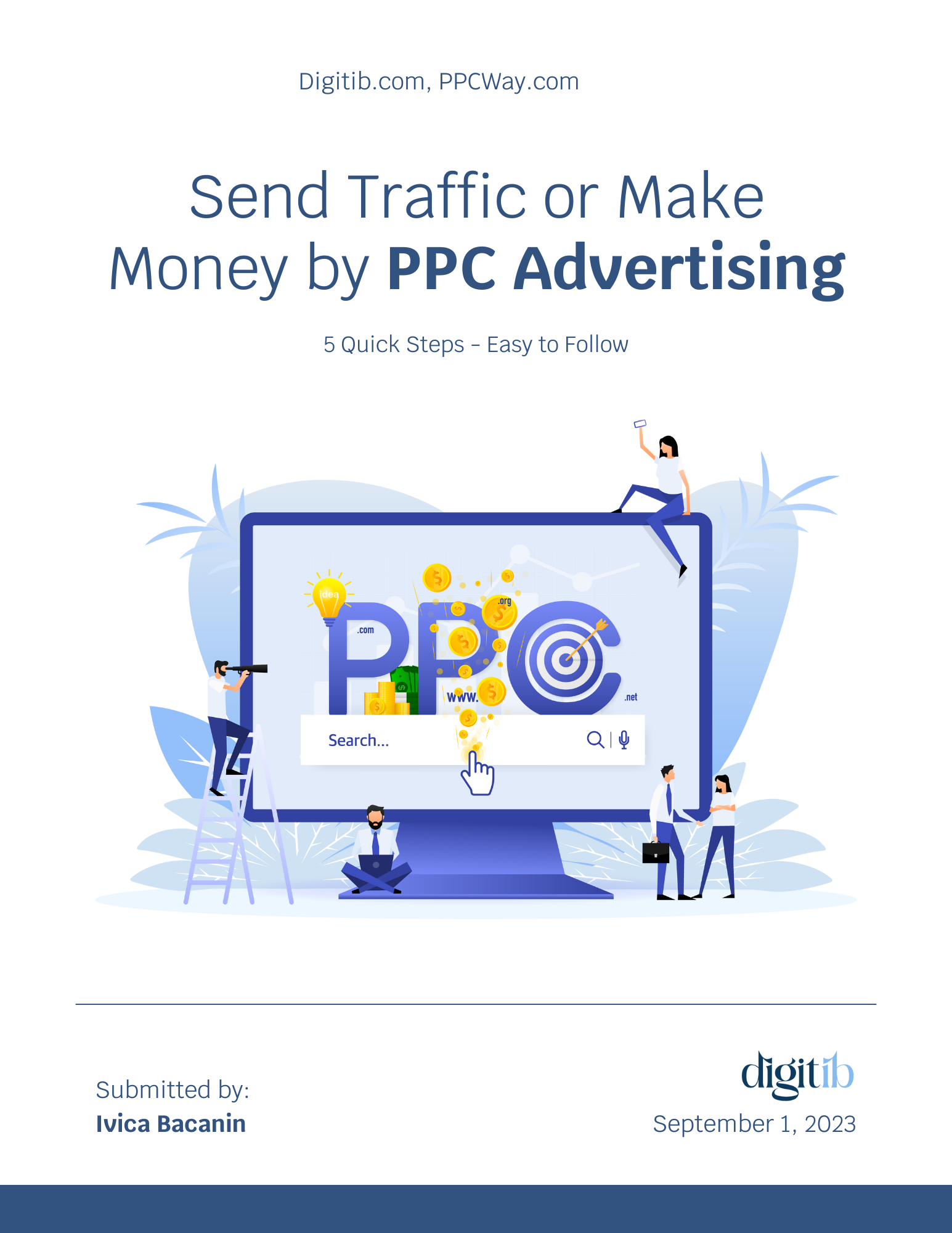Ultimate Guide Start a Blog Like a Business in 11 steps
- Choose Your Blog’s Niche
- Write Down Your Blog’s Goals
- Pick a Domain Name
- Get Your Hosting and Domain
- Set up WordPress CMS
- Pick Your Blog’s Theme
- Install WordPress Plugins
- Set Up Your Blog’s SEO
- Start Creating Content
- Create a Long Term Content Strategy
- Guest Posting and Link Building
Using Video for Marketing
Using Spy Tools for Advertising
Start a Blog Like a Business in 11 steps
Starting a blog like a business can be a great way to make money while helping others. When starting a blog, it's important to make sure that you have a plan and that you are organized. Here are steps for starting a blog like a business:
1. Choose Your Blog’s Niche
Write Down Your Blog’s Goals
Pick a Domain Name
Get Your Hosting and Domain
Set up WordPress CMS
Pick Your Blog’s Theme
Install WordPress Plugins
Set Up Your Blog’s SEO
Start Creating Content
Create a Long Term Content Strategy
Guest Posting and Link Building
If you follow these steps, you'll be well on your way to starting a successful blog like a business!
1. Choose Your Blog’s Niche
Now that you have a topic to blog about, it’s time to choose your blog’s niche. This is the specific area of blogging that you will focus on.
Some popular niches for bloggers include fashion, beauty, food, travel, home decorating, and parenting. However, there are many other options to choose from, so don’t feel limited by these.
When choosing a niche, it’s important to consider your interests and what you know about. You should also think about the kinds of topics that your target audience is interested in.
If you’re not sure which niche to choose, do some research on popular blogs in your desired topic area. This will give you a better idea of what’s out there and help you narrow down your options.
Once you’ve chosen a niche, it’s time to start writing! Be sure to check out our other blogging tips for more advice on getting started.
Download here 35 guaranteed profitable niches to promote:
1. Video Creating Tools | 19. Drones |
2. Ads Spy Tools | 20. Ecommerce Software |
3. 3D Design Software | 21. Email Marketing |
4. Affiliate Tracking Software | 22. ERP |
5. Binary Options | 23. Fantasy Sports |
6. Bitcoin Exchange | 24. Help Desk Software |
7. Boat Rentals | 25. Home Security System |
8. Business & Virtual Phone Service | 26. Loans |
9. Call Center Software | 27. Membership Website Software |
10. Casino | 28. Project Management Platforms |
11. Cloud Storage | 29. SEO Software |
12. Conversion Tracking | 30. Time Tracking & Billing |
13. CRM | 31. Trading Platforms |
14. Crowdfunding Platforms | 32. Video Conferencing |
15. Data Visualization Software | 33. Web Hosting |
16. Dating Sites | 34. Webinar Software |
17. Fitness Business Software | 35. Website Builders |
18. Debt Relief |
Recruiting niches to promote
Monthly affiliate commissions can be a great way to make some extra money. Depending on the affiliate program, you may be able to earn commissions on sales that are generated through your website or blog. Commissions can vary depending on the merchant, so it is important to do your research and find programs that offer the best commissions.
One of the best ways to maximize your affiliate earnings is to choose programs that offer high payouts for the products or services that you promote. For example, if you are promoting a product that costs $50, you will want to find an affiliate program that pays at least 50% commission on each sale. This will allow you to make a decent profit on each sale that you generate.
Another way to maximize your earnings is to choose affiliate programs that offer recurring commissions. This means that you will earn a commission each time a customer purchases the product or service that you are promoting. This can be a great way to build up a steady income stream from your website or blog.
You should also look for affiliate programs that offer bonus commissions. These are typically given to affiliates who generate a certain amount of sales within a certain period of time. For example, you may be able to earn a $5 bonus commission for every sale that you generate within the first 30 days after joining an affiliate program. This can be a great way to jump start your earnings.
When choosing an affiliate program, it is important to consider the products or services that you are promoting. Make sure that the products are of high quality and that the affiliate program is reputable. If you are unsure about a particular program, be sure to do your research before signing up.
By choosing the right affiliate programs, you can maximize your earnings and build a successful online business.
When it comes to making money online, affiliate commissions can be a great way to earn some extra cash. There are a number of different affiliate programs available, so it is important to find one that offers the best commissions. You should also look for programs that offer recurring commissions and bonus commissions.
2. Write Down Your Blog’s Goals
Your blog’s goals should be to provide quality content for your readers, and to help you grow as a writer. You should also aim to connect with other bloggers and build a community of followers.
One way to provide quality content is to write about topics that you are passionate about. This will ensure that your writing is interesting and enjoyable to read. Additionally, by writing about topics that you are knowledgeable about, you will be able to provide valuable information to your readers.
Another way to grow as a writer is to connect with other bloggers. You can do this by leaving comments on other blogs, participating in blog hops, and guest posting on other blogs. Additionally, you can connect with other writers through social media sites such as Twitter and Facebook.
Finally, you should aim to build a community of followers. This can be done by offering helpful advice and tips, participating in discussion forums, and by providing quality content on a regular basis. By doing these things, you will be able to attract new readers and followers, and retain your existing ones.
3. Pick a Domain Name
4. Get Your Hosting and Domain
5. Set up WordPress CMS
6. Pick Your Blog’s Theme
7. Install WordPress Plugins
8. Set Up Your Blog’s SEO
Blogging is a great way to share your thoughts with the world, and it can also be a great way to improve your website’s SEO. But in order to get the most out of your blog, you need to make sure that you are taking advantage of SEO best practices.
One of the most important things you can do to improve your blog’s SEO is to make sure that you are using the correct keywords. In order to find the right keywords, you need to do some research. There are a number of different tools that you can use to help you find the right keywords, including Google AdWords Keyword Planner and Semrush.
Once you have found the right keywords, you need to make sure that you are using them throughout your blog. This means using them in your titles, in your tags, and in the body of your posts. However, you also need to be careful not to overuse keywords, as this can result in your blog being penalized by Google.
Another important thing to keep in mind when optimizing your blog for SEO is the length of your posts. Google prefers longer articles, so try to write posts that are at least 1,500 words long.
By following these tips, you can help improve your blog’s SEO and get more traffic from Google and other search engines.
9. Start Creating Content
Start creating blog content by writing about a topic that you're interested in. When you write about something that you're passionate about, it will be easier to produce content that is interesting and engaging. Choose a topic that you're familiar with so that you can write confidently about it. When you're finished, share your content with others and see what they think. You may be surprised by the feedback that you receive.
Creating quality blog content can be a challenge, but it's worth the effort. When you take the time to produce great content, you'll be rewarded with an audience that is interested in what you have to say. Keep writing and don't give up – your audience is waiting for you.
10. Create a Long Term Content Strategy
A long term content strategy is key to a successful online presence. You need to have a plan for creating and sharing content on a regular basis. This will help you to stay top of mind with your customers and potential customers.
Here are some tips for creating a long term content strategy:
1. Know your audience: You need to understand who you are creating content for. What are their needs and wants? What do they like to read about?
2. Create a content calendar: This will help you to plan and publish your content on a regular basis.
3. Be consistent: Once you start publishing content, you need to be consistent with it. This will help you to build an audience and keep them engaged.
4. Be creative: Don't be afraid to try new things with your content. Experiment with different formats, topics, and angles.
5. Use social media: Promote your content on social media channels to reach a wider audience.
6. Repurpose your content: Don't let your content go to waste. Find ways to repurpose it and give it new life.
7. Analyze and adjust: Always analyze the performance of your content. See what's working and what's not. Adjust your strategy accordingly.
By following these tips, you can develop a long term content strategy that will help you to achieve your business goals.
11. Guest Posting and Link Building
Guest posting and link building are two great ways to improve your website's SEO. Guest posting is when you write a blog post for another website, and link building is when you get other websites to link to your website. Both of these strategies can help you increase traffic to your website and improve your search engine ranking.
If you're looking to guest post, start by finding websites in your niche that accept guest posts. Then, pitch a few ideas for articles that you think would be a good fit for the site. Once your article is accepted and published, be sure to promote it on social media to get more exposure.
For link building, reach out to websites that are relevant to your niche and see if they're interested in linking to your website. You can also do things like guest blogging and directory submissions to help build links. Just be sure to focus on quality over quantity, as too many low-quality links can actually hurt your SEO.
Both guest posting and link building are great ways to improve your website's SEO. So start reaching out to websites in your niche and see how you can get involved.
You'll be glad you did!
Using Video for Marketing
Video is becoming an increasingly popular medium for marketing. It can be used to engage customers and create a connection with them. Videos can also be used to show off your products or services and explain what makes them unique. They can help you build a brand and create a loyal customer base.
There are many different ways to use video for marketing. You can create short, informational videos or longer, promotional videos. You can also use videos on your website, in email marketing campaigns, and on social media platforms.
If you’re looking to start using video for marketing, there are a few things you need to keep in mind. First, you need to create engaging and interesting content. Your videos should be well-produced and informative. They should also be entertaining and visually appealing.
Second, you need to promote your videos. You can do this by sharing them on social media, emailing them to customers and prospects, and embedding them on your website.
Third, you need to track your video’s performance. This includes things like how many people view your videos and how long they watch them for. You can also track how many people take action after watching your video, such as signing up for your email list or visiting your website.
If you keep these three things in mind, you can start using video for marketing and see great results.
Using Spy Tools for Advertising
Many people believe that spy tools are only for detectives and law enforcement officials, but the truth is that anyone can use spy tools for advertising. In fact, spy tools can be a great way to get an edge on your competition.
There are many different spy tools available on the market, and each one has its own unique set of features. However, there are a few core features that all spy tools share. These include the ability to track phone calls, texts, and emails; access GPS data; and monitor social media activity.
If you're looking to use spy tools for advertising, then you need to make sure that you choose a tool that has the features you need. Otherwise, you won't be able to get the most out of your investment.
When it comes to advertising, spy tools can be a great way to get an edge on your competition. However, you need to make sure that you choose the right tool for the job. Otherwise, you won't be able to get the most out of your investment.





